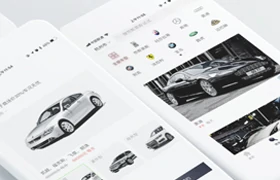- Mongolia Home >
- Mongolia News >
- Developing the Future of Connected Cars
Mongolia News
Developing the Future of Connected Cars

The automotive industry has been revolutionized by the emergence of the Internet of Things (IoT) and Artificial Intelligence (AI) technologies. In recent years, there has been a growing focus on the development of connected cars, also known as the Internet of Vehicles (IoV) or vehicle-to-everything (V2X) communication. This article explores the importance of car connectivity and the potential it holds for the future.Connected cars have become a topic of great interest and significance in the automotive sector. With the advancement of technology, vehicles are no longer merely a means of transportation. They have evolved into sophisticated machines embedded with sensors, processors, and wireless connectivity, enabling them to communicate with other vehicles, infrastructure, and even pedestrians.The main goal of car connectivity is to enhance safety, efficiency, and overall driving experience. One of the primary applications of connected cars is their ability to provide real-time traffic information to drivers, helping them avoid congestion and select the most optimal routes. This not only saves time but also reduces fuel consumption and lowers emissions.Moreover, connected cars have the potential to revolutionize road safety. By exchanging information with other vehicles and infrastructure, they can detect and react to potentially dangerous situations in real-time. For instance, if a connected car detects an imminent collision, it can autonomously apply brakes or take evasive actions to prevent accidents.Car connectivity also enables advanced vehicle diagnostics and maintenance. Connected cars can monitor various parameters, such as engine performance, tire pressure, and battery health, and transmit this data to the service providers. This allows for predictive maintenance, where potential issues can be detected before they turn into major problems, thus reducing the chances of unexpected breakdowns.Furthermore, connected cars provide a platform for various infotainment services. Passengers can access personalized content, including music, news, and social media, through integrated infotainment systems. Additionally, IoT-enabled vehicles can connect with other smart devices, providing seamless integration with home automation systems and wearable devices.However, the development of connected cars also presents its own set of challenges. The primary concern is the security and privacy of the data transmitted between vehicles and the surrounding infrastructure. Cybersecurity measures must be put in place to ensure that connected cars are not vulnerable to hacking or unauthorized access.Another challenge is the seamless integration of various communication protocols and standards. For car connectivity to reach its full potential, there needs to be standardization across different manufacturers and service providers. Interoperability between systems is crucial to enable effective communication and collaboration.In conclusion, the development of connected cars is transforming the automotive industry. With the integration of IoT and AI technologies, vehicles are becoming smarter, safer, and more efficient. While there are challenges to overcome, the benefits of car connectivity, such as improved safety, enhanced driving experience, and better maintenance, make it a promising technology for the future. As we continue to explore the possibilities, the future of connected cars looks exciting and full of potential.
Mongolia Services
Mongolia Advantages
2. A development team of 50 people with excellent skills
3. Provide beautiful quotes to each customer
4. Ensure quality and timely completion of tasks
5. Ensure smooth communication and provide high-quality services

O
N
T
A
C
T









 Chinese
Chinese English
English French
French Russian
Russian Spanish
Spanish Portuguese
Portuguese Arabic
Arabic













